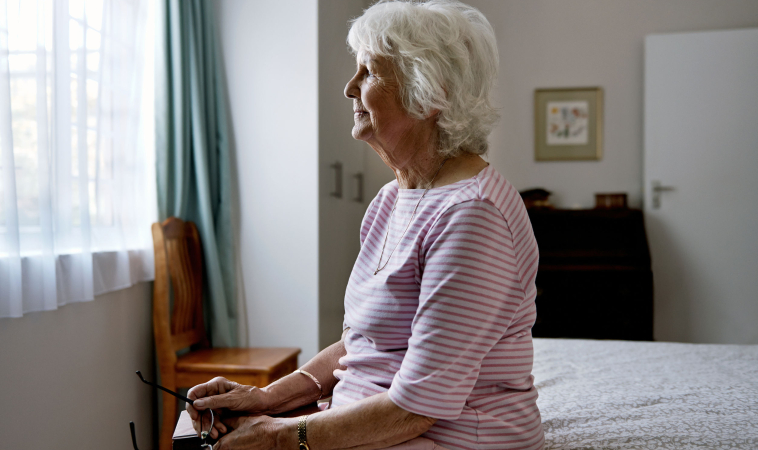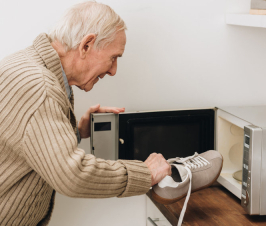Ella James
As we grow older, memory loss is a daunting issue that most will have to deal with at some point. Alzheimer’s disease, a memory loss illness, affects 5.3 million Americans; 5.1 million of which are older than 65 years of age. Although the number of people that suffer from Alzheimer’s grows every year, so does the number of tips and techniques to help cope with it.
Being diagnosed with Alzheimer’s can be frightening and frustrating, but it doesn’t mean you have to give up your day to day routines. There are numerous memory tips that can aid information retention in the early stages of treatment. The following tips, from cognitive exercises to brain enhancing supplements, will help improve independence for anyone under Alzheimer care.
7 Helpful Memory Tips
1. Use Mnemonics
Remember in grade school when you had to remember something boring in history class? You would put the information in a poem or song to help you remember. This technique to recall info by using a familiar form is called the mnemonics system. This device helps us remember things we couldn’t normally. One study had people of early Alzheimer’s stages take a test, who then improved their scores by 33% after learning how to use mnemonics.
2. Carry a Notebook Around
If you find yourself at the grocery store and can’t remember what you need to buy, it might be helpful to carry a notepad around with you. Carrying a notebook throughout your day will help you remember and store information relative to your daily activities. This could include phone numbers, addresses, appointments and directions.
3. Use Sticky Notes
These small sticky pieces of paper can be quite helpful when it comes to labeling things around your home. If you find yourself searching for something, take a sticky note and apply it to a drawer that states what’s inside. They can also be helpful to give you daily reminders. Putting an “already took” note on your medications will help remind you if you’ve taken your daily dose or not.
4. Plan Your Day Accordingly
Emphasize things you can do safely on your own when you’re making a routine schedule for yourself. Plan to visit places you have frequently made trips to in the past, such as the supermarket or the park. If you’re not comfortable, ask someone to accompany you on your journey out. Try not to hurry when going about your day. Take your time when communicating with others.
5. Relying on Help for Your Monetary Needs
If you are under Alzheimer care, it may be wise to start securing your financial wellbeing. Sign up for direct deposit so you won’t have to constantly make trips to the bank. It may also be a good idea to have family or close friends you can trust to write out your checks and then simply sign them. Most banks today have programs for people that suffer from cognitive impairment, so make sure to ask your bank if they accommodate.
6. Eat Some Brain Food
Many foods boost cognitive and memory ability, so be sure to stock up on some if you have been diagnosed with cognitive impairment; the earlier the better. Fish (especially salmon, tuna, mackerel and herring) is a great brain food. It’s full of omega-3 fatty acids which have been known to help dementia and Alzheimer’s patients. Berries, fruits and vegetables are also related to reducing levels in memory loss.
7. Brain Enhancing Supplements
There is, of course, no pill which makes you smarter. Brain enhancing supplements, however, have been used to treat Alzheimer’s patients, notably in Germany and France, due to some studies showing it does help cognitive impairment. Ginkgo leaves from China are believed to improve the oxygen flow to the brain, which reduces memory loss effects. These supplements still have not been isolated to prove if they truly help dementia or Alzheimer’s though, and it’s important to ask your doctor before using them.
Conclusion
At some point, anyone living under Alzheimer’s care means that it might become increasingly dangerous for you to on your own. It’s important to remember that you’re not alone; however, 1 in every 9 people age 65 or older is diagnosed with Alzheimer’s disease.
It also doesn’t mean you have to give up your sense of independence during the early stages. There will be hardships and difficult times, but this advice will improve your memory and cognitive ability to help retain your independence.
Ella James is an aspiring author who is pursuing Health Services Administration degree from St. Petersburg College. She is an active contributor to Consumer Health Digest, which is a leading Health News. In recent years, she had the opportunity to review Joint soother. Get connected with her on Facebook and Twitter.
References:
https://www.consumerhealthdigest.com/sleep-disorder/alzheimers-disease-and-sleep.html
http://healthinthelaughlane.com/6-pillars-alzheimers-disease-prevention/

















